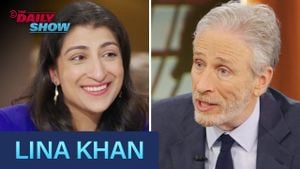Following the recent 2024 U.S. Presidential election, the media sphere is buzzing with analysis and the political climate continues to shift dramatically. Donald Trump, the Republican nominee, celebrated his unexpected victory against incumbent Vice President Kamala Harris on November 5, 2024, which has set off waves of responses not only from political analysts but also from media outlets everywhere. Trump's campaign, bolstered by strong grassroots support and significant social media presence, has stirred controversy over its tactics and the narratives it has been able to push effectively.
On the election night, Trump addressed his supporters at the Palm Beach Convention Center, where he expressed gratitude and shared his vision for the next four years. His campaign manager, Susie Wiles, was named the incoming White House Chief of Staff, cementing her role as one of his most trusted advisors. Wiles has played a significant role during Trump's previous campaign, paralleling the strategy deployed during the 2016 elections, which successfully capitalized on the unique media ecosystem and public sentiments.
Critics have been quick to point out the playbook Trump is reportedly leaning toward – one reminiscent of authoritarian tactics aimed at undermining press freedom. Various experts have expressed concerns, stating, "How Trump could use authoritarian methods to have control over the media is alarming.” This echoes fears from previous Trump administrations where media outlets faced aggressive scrutiny and combative relations with the White House. Now, with Trump back at the helm, many wonder what will change.
Despite Trump’s victory, significant conversations have popped up about the media’s role during the election. Observers have noted how media narratives seem increasingly constrained, causing some journalists to describe their struggle as 'attempting to force-feed narratives' to the American populace. Reports suggest many media elites are frustrated over their perceived inability to shape public opinion as they did before, leading to disengagement from traditional news outlets. This situation fuels the argument for reforming how information is disseminated, particularly by improving trust between outlets and the audience.
Social media platforms, which were instrumental for Trump's outreach, have come under scrutiny themselves for their content moderation policies. Many conservatives argue these platforms censored their voices leading up to the election, and even now, they feel the consequences of what they call "tech censorship.” They point to instances where social media giants limited the reach of certain posts and narratives they deemed "misleading" or "inflammatory.” This conflict points to broader concerns surrounding free speech and the influence of tech companies on political discourse.
A highly contentious point during the election was the continued debates around voting rights and security. Many bipartisan supporters acknowledged reforms and measures were necessary for maintaining integrity within the electoral system. Trump's camp was vocal about the need to monitor elections closely, pushing various ballot integrity measures which they argued were key to restoring public confidence. After the elections, with razor-close margins seen across several states including Pennsylvania and Michigan, these issues have gained traction as numerous discussions continue about their potential long-term impacts.
The political division post-election has also sown the seeds for future debates within the Republican party. Trump's leadership is being challenged to unify factions within its ranks, particularly those who either align with more traditional conservative values versus newer, more populistic perspectives he has championed.
Meanwhile, the Democrats are left to reassess their approaches following this unexpected loss. Kamala Harris’s campaign strategy has faced criticism, as some party members call for more progressive policies to resonate with younger voters, who appear to have leaned more toward Trump’s message than anticipated. This internal conflict has prompted some backlash against Harris, with suggestions she may need to reconsider her leadership style and outreach going forward.
Another fallout from the election was the shift seen across battleground states, particularly two counties: Elizabeth and Grand Traverse. Political analysts agree these counties may have tipped the scales for Trump's victory, marking them as places to watch closely for both parties’ strategies moving forward. The significant demographic changes and voting trends observed there indicate the potential for shifting political landscapes for future elections.
Adding to the rhetoric, social issues such as immigration and healthcare surfaced prominently during pre-election discourse, shaping how both parties communicated their platforms. The Arizona Sheriff gained media attention by advocating for the drug crisis to be front and center instead of sidelined issues like immigration, highlighting the urgency for solutions to problems impacting local communities deeply, and this remains part of broader national conversations.
Despite the controversies and turbulence surrounding this election, many Americans are left wondering what’s next. The convergence of older media practices clashing with modern communication methods presents unprecedented challenges and opportunities. With Trump’s victory putting him back on the political map, his approach could redefine the political media interaction, fostering dialogues about trust, regulation, and representation.
Beyond political leaders and party strategies, the future of the media remains at stake. Will traditional news broadcasts or online outlets prevail as the primary sources for information? Or will new conventions and platforms emerge, altering the consumer’s relationship with news forever? The answers may shape the American political experience for years to come.
Moving forward, the next steps for lawmakers and media elites will demand careful listening, adaptive strategies, and futuristic visions. How both sectors respond to this election’s fallout can redefine not just the political theater but the rules of engagement within American democracy. And so as the dust settles on this election, both winners and losers brace for what lies over the horizon.



